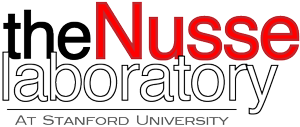Pathogenesis of listeria-infected Drosophila wntD mutants is associated with elevated levels of the novel immunity gene edin.
Submitted by admin on Thu, 10/14/2010 - 22:44
| Title | Pathogenesis of listeria-infected Drosophila wntD mutants is associated with elevated levels of the novel immunity gene edin. |
| Publication Type | Journal Article |
| Year of Publication | 2008 |
| Authors | Gordon MD, Ayres JS, Schneider DS, Nusse R |
| Journal | PLoS Pathog |
| Volume | 4 |
| Pagination | e1000111 |
| Date Published | Jul |
| ISSN | 1553-7374 (Electronic) |
| Abstract | Drosophila melanogaster mount an effective innate immune response against invading microorganisms, but can eventually succumb to persistent pathogenic infections. Understanding of this pathogenesis is limited, but it appears that host factors, induced by microbes, can have a direct cost to the host organism. Mutations in wntD cause susceptibility to Listeria monocytogenes infection, apparently through the derepression of Toll-Dorsal target genes, some of which are deleterious to survival. Here, we use gene expression profiling to identify genes that may mediate the observed susceptibility of wntD mutants to lethal infection. These genes include the TNF family member eiger and the novel immunity gene edin (elevated during infection; synonym CG32185), both of which are more strongly induced by infection of wntD mutants compared to controls. edin is also expressed more highly during infection of wild-type flies with wild-type Salmonella typhimurium than with a less pathogenic mutant strain, and its expression is regulated in part by the Imd pathway. Furthermore, overexpression of edin can induce age-dependent lethality, while loss of function in edin renders flies more susceptible to Listeria infection. These results are consistent with a model in which the regulation of host factors, including edin, must be tightly controlled to avoid the detrimental consequences of having too much or too little activity. |
| DOI | 10.1371/journal.ppat.1000111 |
